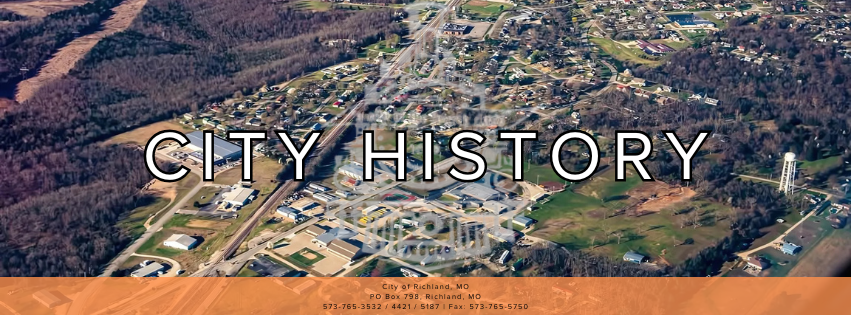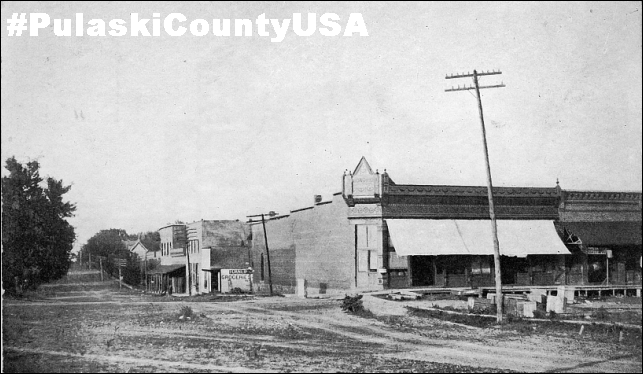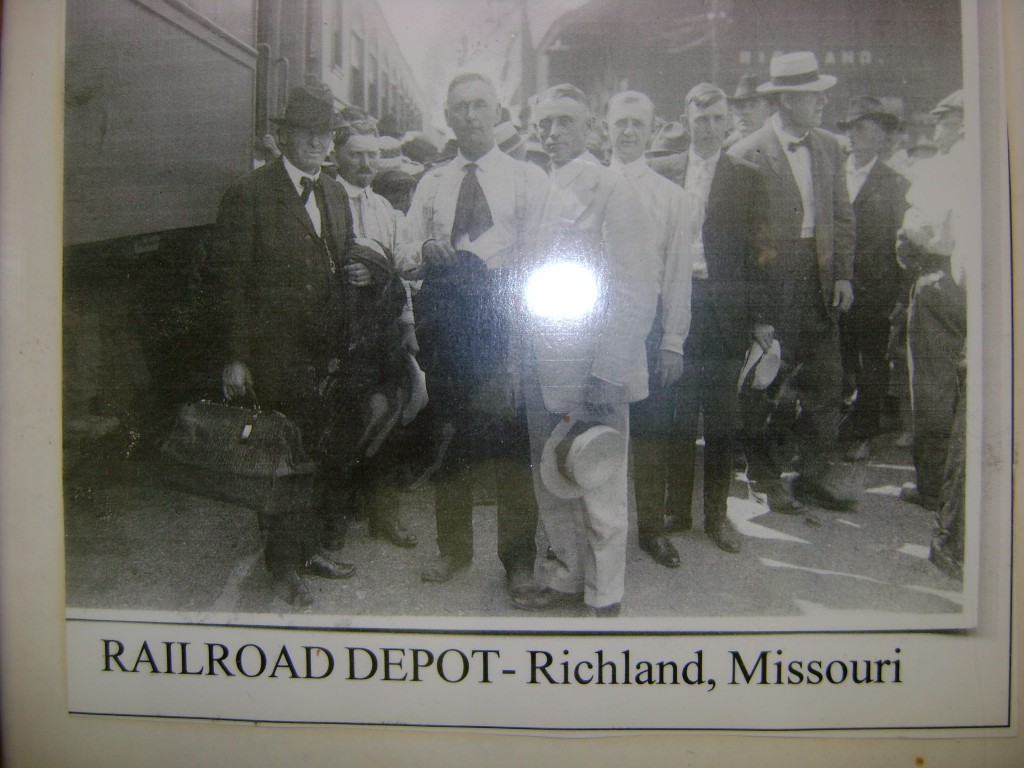Welcome



In the fall of 1869, surveyor M. Santee identified the need for towns along the railroad and laid out the site that would become Richland, situated on both sides of the railroad track. One of the first buildings erected was a store by Captain H.E. Warren and Sam Gibson, known today as the H.E. Warren Store.
Originally named Lyons Station in honor of General Lyon, the community was forced to change its name after discovering another town named Lyons already existed. The new name, Richland, was chosen to honor G.W. Rich, a director of the railroad.
In the late 1870s, Dr. James Titterington built the Richland Steam, Flour, and Saw Mills. The town became an essential shipping point for the St. Louis and San Francisco Railroad, serving as a hub between Springfield and St. Louis. Livestock production and general farming became the town’s primary industries, with a stockyard established to ship cattle, hogs, and sheep.
By 1884, Richland was incorporated as a fourth-class city, with its first mayor being M.W. Rice. By 1890, Richland had become a thriving business center, with stores, a band, a newspaper, public and private schools, churches, hotels, and a variety of industries contributing to its growth.
In the early 1930s, Ozarks Fisheries, Inc. was established by two men from Tulsa who bought several creek farms west of Richland to raise goldfish. The business is still thriving today.
As Richland enters the 21st century, it continues to prosper. The city is home to industries, banks, medical clinics, grocery stores, restaurants, a pharmacy, H.E. Warren’s Department Store, mini-malls, hardware stores, florists, and much more, offering a variety of services to meet the needs of residents and visitors.
Throughout its history, churches of many denominations and various social and civic groups have played an important role in the development of Richland, contributing to its social fabric and offering recreation and activities for all.